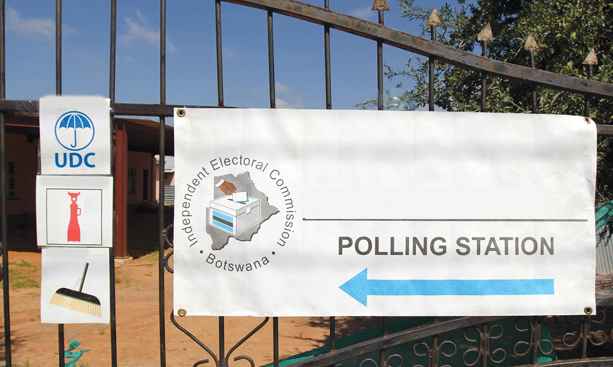Abraham Lincoln’s famous quote on deception says “You can fool all the people some of the time and some of the people all the time, but you cannot fool all the people all the time”. And when President Obama said that Africa needs strong institutions as opposed to strong individuals, he was simply saying for these institutions to be strong, they have to be fully independent. But Obama was not saying things beyond our comprehension because instruments which establish these institutions are crafted in such a manner that their independence is not guaranteed but masqueraded as such.
An electoral commission is a critical institution which is meant to deliver not only free and fair elections but also a vehicle to carry democracy forward. For these outcomes to be achieved, unquestionable independence is not an option. What constitutes an independent institution like the Independent Electoral Commission (IEC)? The first port of call is the Act that establishes it that will determine the independence or lack thereof. It is clear from academics that we don’t have a law which specifically pronounces the independence of the Commission. The independence of the Commission derives from the need for this institution to be safeguarded from undue influence and interference by granting them operational autonomy.
Essential conditions required for independent institutions to operate freely and effectively include but not limited to (1) financial independence which ensures that institutions are provided with sufficient funds to perform their functions with full operational autonomy, (2) independence of appointment and tenure which ensures that appointments are merit-based where members of staff are free to work without fear of dismissal for arbitrary or political reasons and (3) independence from interference in decision-making which ensures that government doesn’t have any influence over decisions taken by such institutions and that the executive authorities respect and uphold those decisions. Does the Commission meet these three essential conditions?
Financial independence in this context will be defined by the Commission’s budgetary requirements drawn by itself without any interference from any authority and presenting them to parliament and not through someone else as is the case. This is informed by their own operational requirements. The fact that the Commission is directly under the authority of the executive and not Parliament renders it financially not independent. Staffing of the Commission is the prerogative of Directorate of Public Service Management (DPSM). Reports to the effect that Principal Elections Officers of the Commission have been transferred by DPSM buttressed the point that there is no independence of appointments and that arbitrary or political reasons could have played a part in such transfers. The South African IEC independently recruits, disciplines and fires its own staff under the direction of the Chief Electoral Officer.
Independence from interference in decision-making of the Commission cannot be expected when the executive oversees it. This, therefore, means the Commission will always be “arm-twisted” by the same executive to take decisions which are in its best interests, recent electoral reforms being a case in point. It was reported by The Patriot on Sunday dated August 28, 2016 that at the IEC workshop on Electronic Voting Machines (EVM), the Commission withheld the negative side of these machines yet it wants them used in 2019. Just why this negative side to these machines, with all the reported potential in the world to deliver unfair election results was ignored, boggles the mind and tells the story. If the Commission couldn’t point out these negatives which are not from its making in a public platform, does this not add to the lack of independence to even fail to state the obvious?
“In Botswana, Professor Emmanuel Botlhale and Dr Onalenna Selolwane carried out a study and found that the IEC foremost challenge is the lack of an enabling legislation in the form of an IEC Act. The study says it is desirable that there be a specific law that defines the IEC, specifically, what its independence means”. (Mmegi 26 August 2016). Just how does the ruling party explain if it can, why it has failed in 18 years to come up with an IEC Act? Complacency and extended comfort zone. The IEC and its political principals, it would appear, knew long before anybody did, that the electoral process will change. Critical stakeholders were not engaged resulting in the electoral law rushed and passed by parliament. When everything is said and done in bad faith, the IEC musters some courage to ask the previously neglected critical stakeholders to endorse them. This is laughable! How and why does the IEC expect these stakeholders to go to their constituencies and sell the electoral reforms they were not consulted on? What and where is the justification of discontinuing supplementary voter registration when the critical stakeholders were not initially engaged?
The Commission and other state institutions are not established to serve and advance the interests of the BDP or the UDC but that of Batswana. We could be having men and women who run the Commission but are deeply constrained by lack of an IEC Act to do so. If the current status of the IEC is Botswana’s version of an independent state institution, then “Lord have mercy….”
